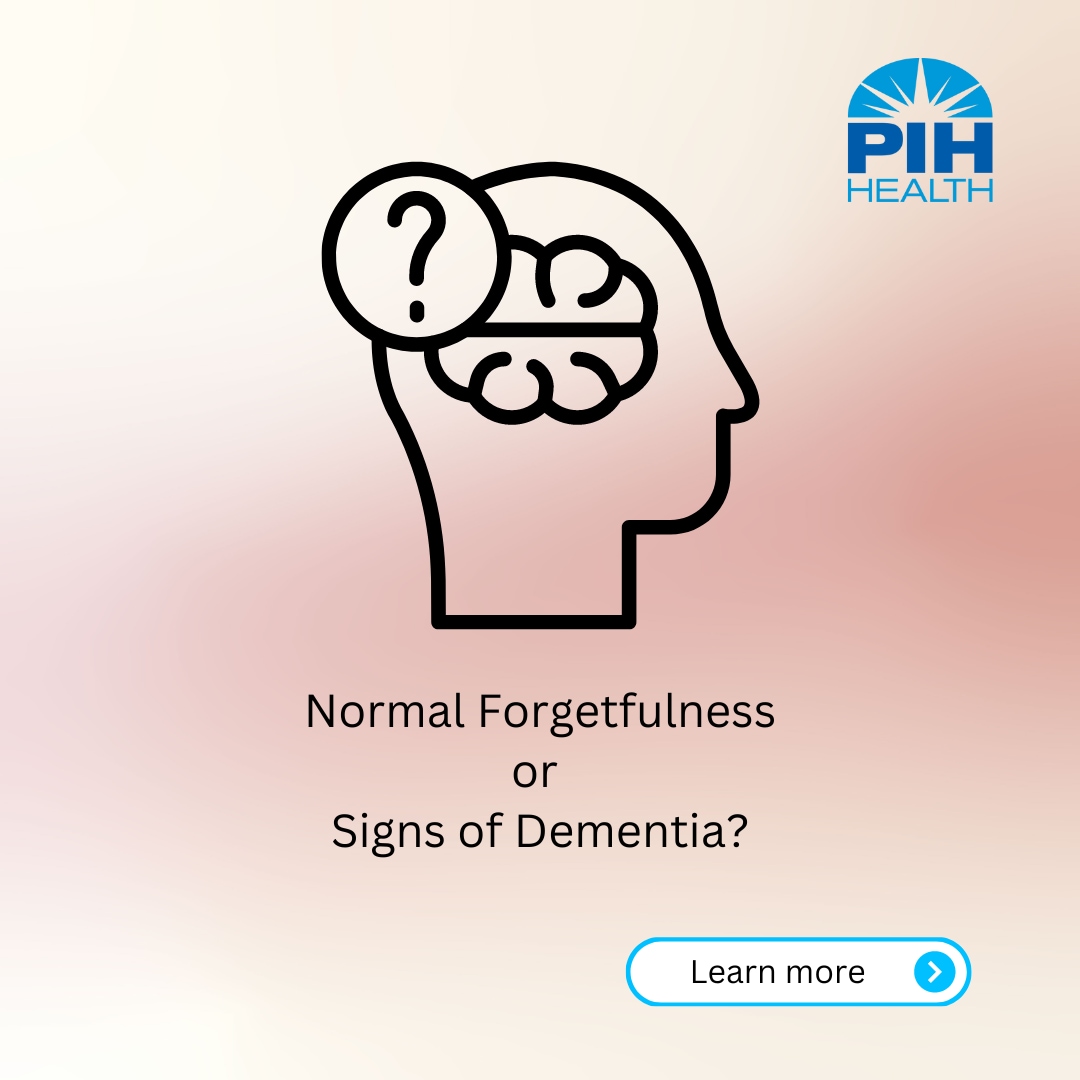When are Memory Problems a Sign of Dementia?
 People with dementia have problems with memory, reasoning, problem-solving, understanding language, and speaking. It is usually diagnosed in people over the age of 65, but it can be seen in people as young as 30 or 40 in some cases.
People with dementia have problems with memory, reasoning, problem-solving, understanding language, and speaking. It is usually diagnosed in people over the age of 65, but it can be seen in people as young as 30 or 40 in some cases.
When it comes to dementia, it’s often family members who notice the first warning signs. Knowing the difference between normal forgetfulness and a more serious memory problem can help you spot the red flags in your relatives’ behavior.
Mind the warning signs
“The brain changes with age just like the rest of the body,” says PIH Health Family Medicine Physician Winston Lai DO. “As a person gets older, brain cells change and don’t communicate as well as they used to. These changes can contribute to minor forgetfulness, such as misplacing the car keys.”
These normal lapses in memory are different from dementia, which occurs when brain cells are damaged by an injury or disease. Thinking and memory problems that aren’t a normal part of aging include:
- Trouble making choices or handling money
- Repeating things in the same conversation
- Shifts in mood and personality
- Withdrawing from work or social activities
- Forgetting how to do regular tasks, such as how to tie shoes
- Confusion around time or place
If you notice these changes or others that affect your loved one’s daily life, speak up.
Smart guide to getting help
The first step to getting help is talking with your loved one’s primary care provider. They may perform tests to determine the root cause of the problem. In some cases, such as when medications are to blame for a foggy memory, the fix may be as simple as changing a prescription.
Some types of dementia, including Alzheimer’s disease, have no cure. However, treatment can slow their progress and make a person’s daily life easier. The earlier dementia is detected, the better treatments such as medicines and memory aids will work to preserve brain function.
Visit PIHHealth.org/doctors to find a doctor, or click to book an appointment with Dr. Lai.